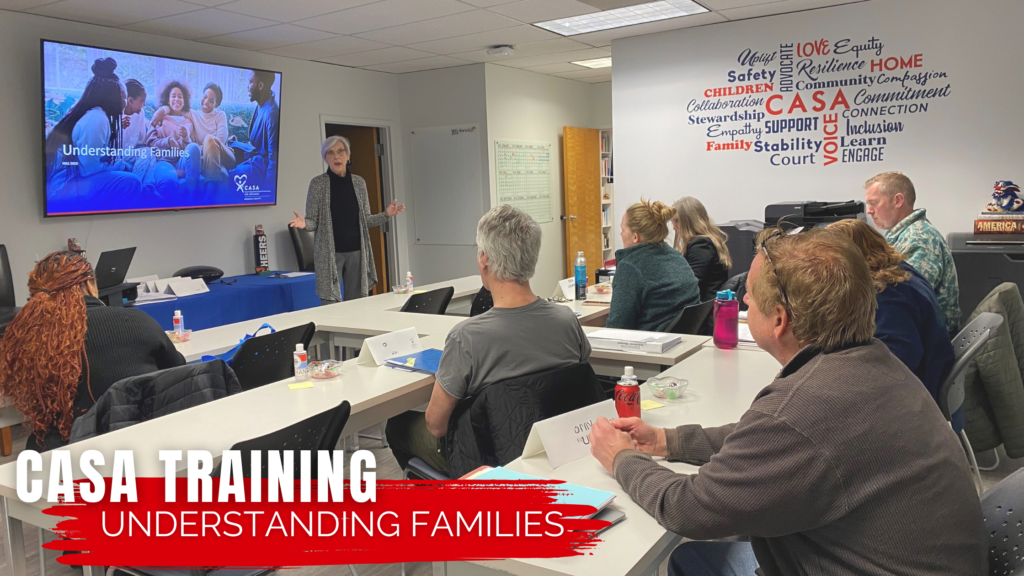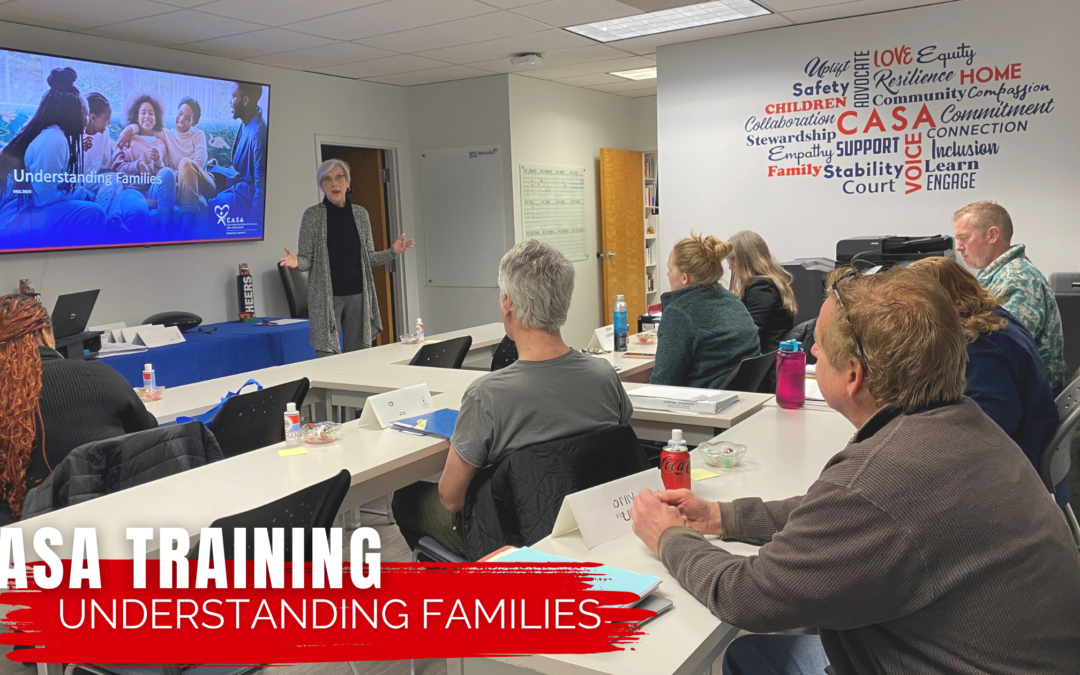
This fall, community members are working through our pre-service training, ready to start their journeys as Court Appointed Special Advocates. They join the 400+ advocates who have come before them during our 30 years of advocacy in Henrico County. We thought it would be a great time to share more about what CASA advocates learn in training.
In addition to learning about children, our CASA advocates also study families, because children exist within the context of their family. As a result, we structure our training to include a session on better understanding families. This includes their strengths, culture, stressors, and challenges. Some of the challenges that we specifically see families facing include mental illness, substance abuse issues, and living with poverty.
Family is so incredibly important to children. We know that generally speaking, children do best when they are with their families. Healthy families offer acceptance, belonging, and cultural connections, which are critical building blocks for growing into emotionally stable adults. And so when it is safe to do so, we celebrate children staying with or reuniting with their families.
Protective Factors
That being said, CASA advocates ensure it is in fact safe for a child to be with their family. Our advocates look for family strengths and establish support systems. They also help build protective factors that may prevent future abuse or neglect. What are examples of protective factors?
- Supportive family and social networks
- Resources for basic needs and adequate housing
- Access to social services and employment services
- Parenting skills including nurturing interactions and child monitoring
- Caring adults who can serve as role models
While helping to fortify these protective factors, CASA advocates actually BECOME one of the protective factors… because they are caring adults who can serve as role models. Better yet, they are role models who have the ability to make recommendations and impact decisions made regarding the child’s well-being. What an important realm of influence!








